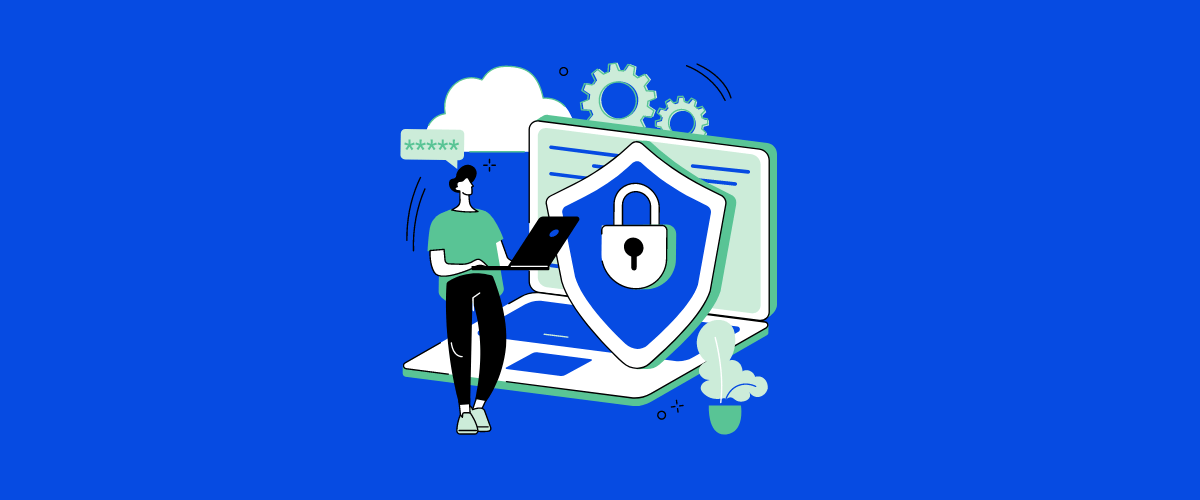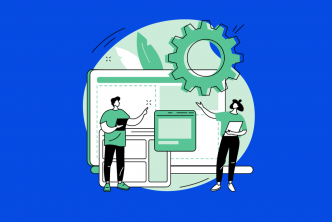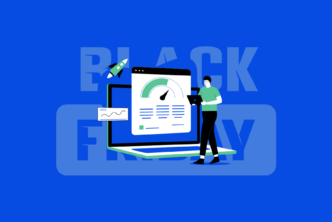Any business should keep its website secure and take proactive actions to defend against hacking and cyber-attacks. This process is known as web security. It includes the use of tools, software, activities, and apps to improve your data protection.
Any company with an online presence must prioritize web security. It’s not only about your website safety, but about the protection of your employees’, company’s, and clients’ data. However, not every website owner knows how to do that. In this article, we have gathered a list of the most helpful actions you can take to improve your cybersecurity and protect your website.
The most common website security weaknesses
While hackers can crack your business in various methods, there are some most common issues on the websites that can help them hack you. The most frequent security threats are:
SQL injections
The basic way for communicating with databases is SQL, which stands for “Structured Query Language.” SQL injection is a technique that allows hackers to bypass any security precautions you might have by directly modifying your database using modified SQL statements. That misleads your database into believing that a malicious SQL statement is a valid command.
Hackers can extract important information from the database or even delete it entirely. This approach takes advantage of known SQL vulnerabilities, putting any website that uses a SQL database at risk.
Attacks through outdated CMS, plugins, and scripts
WordPress, Joomla, and other popular content management systems (CMS) allow online editors to create and update material on their websites. While CMS providers take precautions to protect their software code from cyber attacks, these precautions are not always practical. When it comes to WordPress hosting security, website owners should also take proactive measures to safeguard their websites from potential threats.
Your CMS’s code may contain flaws that allow hackers to bypass your other security measures. While CMS providers will respond promptly to fix any found flaws, you will not be safe until you download and install the most recent patch.
Tips for securing and protecting your website
How should you keep your website secure now that you’re aware of the dangers of a vulnerable website?
Get an SSL certificate
SSL stands for “Secure Sockets Layer,” a security technology for encrypting and authenticating data sent over the internet. An SSL certificate is required to ensure that your website employs this secure protocol.
This certificate will accomplish the following: it will authenticate your domain and establish your ownership. It aids in the prevention of spoofing attacks.
SSL will encrypt any data supplied through your website to prevent hackers from accessing or manipulating it. Change your website’s prefix from the insecure “http://” to the secure “https://.” That adds to your trustworthiness in the eyes of your website visitors (and search engines).
Obtaining an SSL certificate does not have to be costly. Many hosting companies will provide you an SSL certificate for free when you sign up for one of their services.
Use secure passwords
Ensure that your CMS’s access is restricted with strong passwords. That is particularly true for any webmasters or system administrators who operate on your site’s backend. If their passwords are easy to guess, nothing can stop a hacker from assuming their identity, logging into your CMS, and editing or deleting your material.
There are several strategies to encourage the usage of strong passwords.
First of all, inform your site’s visitors about the importance of using passwords that are more complicated than “123456” or “password.”
Moreover, you can enforce strong passwords by implementing automatic checks or plugins that prevent users from creating passwords that do not meet particular criteria.
Update your CMS and any add-ons
As previously said, your CMS, as well as any vulnerable plugins, scripts, or add-ons, might pose a security concern. It’s therefore vital to always have the latest versions installed to make sure you’re not exposing your site to extra risk. Administrators should check for updates and install new versions of CMS, plugins, and other software. Many businesses have a payroll plugin implemented in their websites, you should go for a secure and verified web-based payroll software that enhances the security of your business and doesn’t make it vulnerable, and also provide you with the various features that might be benefiting.
Automatic daily backups
In the event of a cyberattack, the worst-case scenario is that your website is taken down or entirely deleted. You can lose all your content and data if you don’t have a recent version of your site saved as a backup. That’s why it’s vital to set up automated backups regularly, which holds a secure copy of your site and database. That is usually done once a day, but you may find that more or less frequent backups are better for your site.
While a site backup won’t be able to erase the harm caused by potentially sensitive data breaches, it will allow you to restore your site to the most recent backup. It means that any new content or data added since the last backup will be lost.
Approve files or comments manually
A hacker can use SQL injection to run a dangerous command within your database. Cybercriminals can also hack your site by using your contact forms or comment fields. That could include exploiting flaws in those forms or attempting a phishing attack by providing malicious links that other visitors might click.
That’s why it’s a good idea to carefully review all new comments, file uploads, or commands before they’re allowed. This way, you can catch and delete them before they go live and cause any harm.
Protect against XSS attacks
Cross-site scripting (XSS) attacks inject malicious JavaScript into your websites, which then executes in your users’ browsers and changes the page’s content or steals information to transmit back to the attacker. Suppose you display comments on a page without validation, for example. In that case, an attacker may submit comments with script tags and JavaScript, which could execute in every other user’s browser and steal their login cookie, allowing the attacker to control every user who reads the comment. Users must not be able to inject active JavaScript material into your websites.
By injecting malicious JavaScript into your software, hackers can steal users’ passwords and login cookies when they opt-in or register. Install firewalls and defenses to prevent active JavaScript from being injected into your sites. Also, improve your password security to guarantee your safety with one more point.
Defend against SQL injection attacks
To protect your site from hackers injecting rogue code, you should always use parameterized queries rather than ordinary Transact SQL.
Beware of error messages
Make sure you don’t give out too much information in your error messages. Protect your pages and prevent your website users from leaking data stored on your server, just give them minor mistakes (e.g., API keys or database passwords). Don’t publish whole exception data, as this can make SQL injection attacks much easier. Keep detailed error logs on your server, and only show users what they need to know.
Avoid file uploads
Allowing visitors to upload files to your website, even if it’s just to update their avatar, can be a major security concern. The danger is that any file you upload, no matter how innocent it appears, could include a script that completely shuts down your website when run on your server. If you have a file upload form, all files should be treated with caution. Remove file executable permissions and find another way for users to share data and images.
Make sure your software is up to date
It’s critical to keep your operating system, general apps, anti-malware, and website security software up to date with the most recent patches and definitions. If you’re using a third party to host your website, make sure they’re reliable and keep their software up to date as well.
Use a strong firewall
Use a strong firewall and limit external access only to ports 80 and 443. However, you need to be careful with your firewall settings, as you could unintentionally cause a DNS_PROBE_STARTED error or other errors. To fix the DNS_PROBE_STARTED error, you simply have to disable the firewall for certain functions.
Use a separate database server
To effectively safeguard your digital assets, keep your data and web servers on different, separate servers.
Make use of website security tools
Internet security necessitates the use of website security tools. There are numerous free and paid choices available. Also, Software-as-a-Service (SaaS) models provide comprehensive website security features in addition to software.
Educate your employees
It’s essential that on the first working stages, even during employee onboarding, everyone in your company is informed of the policies and procedures you have established to keep your website and data safe and prevent cyber attacks. It only takes one employee to click on a malicious file to allow a breach to occur. Ascertain that everyone is aware of the response plan and has a copy that is easily accessible.
Implement a Cyber Security Risk Assessment Process
Cyber security risk assessment is the process of identifying, analyzing, and evaluating potential risks to an organization’s digital assets. With cyber-attacks becoming increasingly frequent and sophisticated, organizations of all sizes and industries are potential targets for cybercriminals. A cyber security risk assessment process can help you to identify potential vulnerabilities and develop strategies to address them before a breach occurs. This may involve implementing new security measures, updating existing ones, or transferring the risk through insurance or other means.
Make sure your vendors and partners are secure
Many partners and vendors may have access to data in your company. It is another possible breach source. To protect your website and data, make sure your partners and vendors follow your web security best practices. You can do that through your internal auditing process, or you can pay for software security vendors to handle it for you.
Encrypt critical information
Ensure your network encryption is turned on and that any data you save or send online is encrypted. Before sending data over the internet, encryption turns it into a secret code. As a result, the risk of theft, destruction, or tampering is reduced. You can enable network encryption in your router’s settings or by installing a dependable virtual private network (VPN) service on your computer. There’re plenty of VPN solutions in the market but, in case you’re using Mac, this post will help you choose the best option for you.
Use multi-factor authentication (MFA)
MFA (multi-factor authentication) is a security procedure that requires you to give two or more proofs of identification before you may access your account. Before granting access, the system may demand a password or SMS shortcode sent as a text message to your mobile device. Multi-factor authentication adds an extra degree of protection to your account. Using MFA is essential for any website.
Conclusion
Malicious software can easily disable a high-end computer system. Don’t delay implementing the security measures mentioned above. Securing your website against hacking and cyber-attacks is an essential component of keeping your website and business safe.






